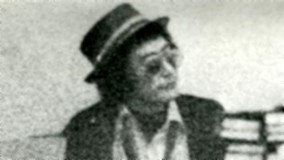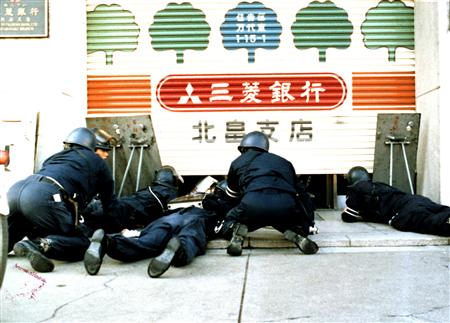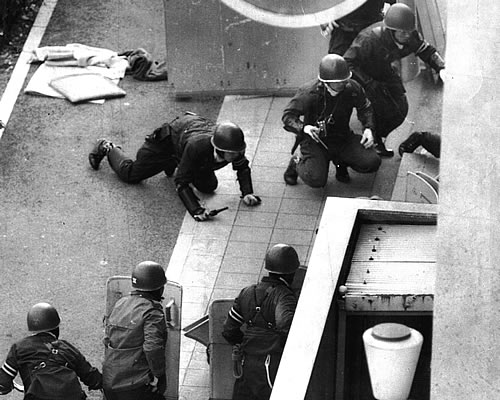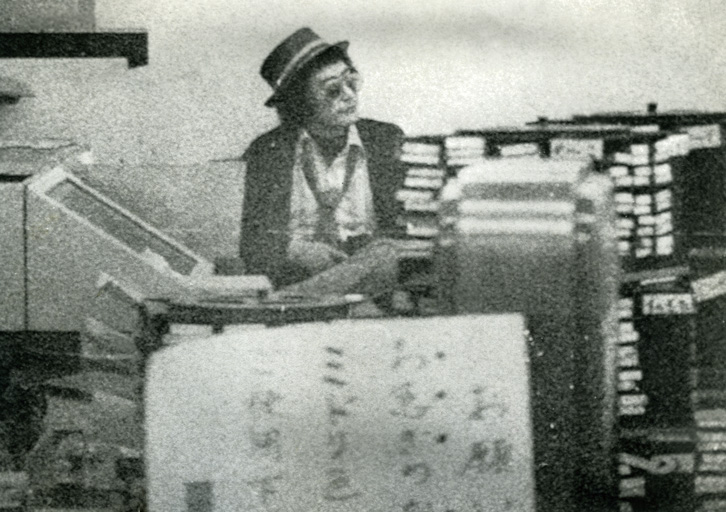Akiyoshi Umekawa
(梅川
昭美,
Umekawa Akiyoshi,
March 1, 1948 - January 28, 1979) was a Japanese
mass murderer who killed a woman on December 16, 1963
and shot dead four people on January 26, 1979.
He was also called Teruyoshi
Umekawa, Terumi Umekawa, Akimi Umekawa
and Akemi Umekawa though those weren't his real
name. He was one of the rare criminals who was shot dead
by Japanese police.
Early
life
Umekawa was born in Otake, Hiroshima
Prefecture. He was a great reader and loved hardboiled
fictions. He also saw the film SalÚ o le 120 giornate
di Sodoma, which had an impact on his life.
On December 16, 1963, while he was 15
and still a minor, he killed a women. Although he was a
murderer, he was still allowed to have guns because
Japanese juvenile law protected his criminal history. He
wanted to make a big incident 15 years after he
committed the first murder.
Mitsubishi Bank sporting gun kidnapping
Umekawa shot dead two employees and
two policemen on January 26, 1979 in a Mitsubishi Bank
in Sumiyoshi-ku, Osaka. He took 40 hostages at the bank.
He asked them, "Do you know the city of sodom (SalÚ o
le 120 giornate di Sodoma)?" He stripped women of
all their clothes and gave them ignominy.
Rokuro Yoshida, who joined criminal
investigations of Kiyoshi Okubo and United Red Army, was
appointed as the incident commander. Osaka armed police
(now Special Assault Team) were called, which was the
first case in the history of Japanese armed police. They
fatally shot Umekawa on January 28, 1979. Yoshida did
not make excuses, claiming that there had been no
alternative to deadly force.
Media
His crime had an impact on Japanese
youths. Neko Oikawa said that he was the main reason why
she didn't have leftist views. A film Tatoo Ari
in 1982 was based on his crime. The words of Kazoku
Hyakkei by Japanese rock band Jagatara in 1983 was
said to be inspired by the crime. The situation of
Japanese Eroge Gakuen Sodom in 1994 was similar
to his crime.




